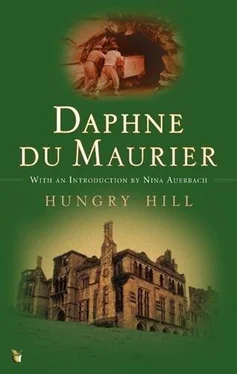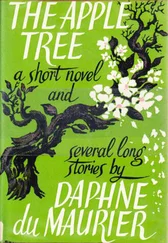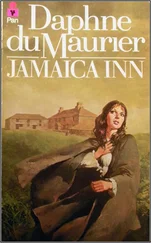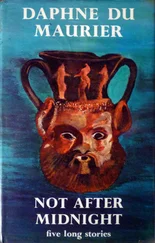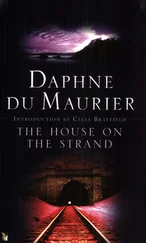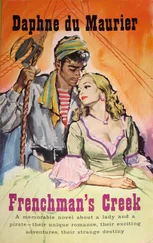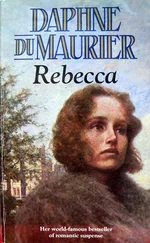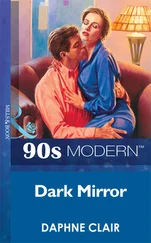Daphne du Maurier - Hungry Hill
Здесь есть возможность читать онлайн «Daphne du Maurier - Hungry Hill» весь текст электронной книги совершенно бесплатно (целиком полную версию без сокращений). В некоторых случаях можно слушать аудио, скачать через торрент в формате fb2 и присутствует краткое содержание. Жанр: Историческая проза, на английском языке. Описание произведения, (предисловие) а так же отзывы посетителей доступны на портале библиотеки ЛибКат.
- Название:Hungry Hill
- Автор:
- Жанр:
- Год:неизвестен
- ISBN:нет данных
- Рейтинг книги:3 / 5. Голосов: 1
-
Избранное:Добавить в избранное
- Отзывы:
-
Ваша оценка:
- 60
- 1
- 2
- 3
- 4
- 5
Hungry Hill: краткое содержание, описание и аннотация
Предлагаем к чтению аннотацию, описание, краткое содержание или предисловие (зависит от того, что написал сам автор книги «Hungry Hill»). Если вы не нашли необходимую информацию о книге — напишите в комментариях, мы постараемся отыскать её.
Hungry Hill — читать онлайн бесплатно полную книгу (весь текст) целиком
Ниже представлен текст книги, разбитый по страницам. Система сохранения места последней прочитанной страницы, позволяет с удобством читать онлайн бесплатно книгу «Hungry Hill», без необходимости каждый раз заново искать на чём Вы остановились. Поставьте закладку, и сможете в любой момент перейти на страницу, на которой закончили чтение.
Интервал:
Закладка:
She put the box of letters away in the cupboard, and went downstairs to her birthday lunch. Patsy the gardener had killed a chicken in honour of the occasion and her mother had baked a special pudding.
She feigned the surprise proper to the occasion, though the same ceremony was repeated every year, and her parents watched her unwrap her presents and give the usual cry of pleasure and astonishment. It was a year by year routine, delightful to all three.
"Father dear, a watch! How good of you and how naughty! It's the very one we admired in the shop window in Slane, and now you have slyly bought it."
"No slyness at all," smiled Tom.
"Kitty Flower drove into Slane from Andriff and got it for me."
"And a writing-case from you, mother. Why am I so spoilt?" Jinny got up from the table, and kissed both her parents. "Of course, I know what it is," she said. "Father wants to borrow the watch so that he can remember to be in time for church, and mother will write down all the recipes on my new paper.
The plot was hatched between you both."
"You see too much," said Tom, "and anyway, what are you going to do with your birthday afternoon? Drive over and see Kitty?"
"No, I think I shall go for a walk, if neither you nor mother need me."
"I intend making jam," said Harriet, "but I'll spare you for once."
It was difficult to believe, thought Jinny, as she walked that afternoon in Clonmere, down by the creek, and looked away across the harbour to Hungry Hill, that beneath that rugged granite face, so white and still under the summer sun, men toiled and sweated and broke themselves and died, and all for the sake of someone who lived far away, in another country, who cared nothing for them or for their families. His house here, beside the water, was like a sepulchre, the windows shuttered and barred.
Sometimes it came to life, when Molly and her husband and children spent a fortnight or so beneath its roof, but mostly it would stay closed, as it was today, Henry Brodrick and his wife lived at Brighton now, so Molly said they had sold the house in Lancaster Gate. And here was Clonmere, waiting for the owner who never came. Jinny stared up at the little balcony in the new wing. It was strange to think that perhaps no one had ever stood there and looked down upon the grass bank and the drive. Once people had done so in their dreams, and the dreams had come to nothing.
Jinny walked away from the castle, and followed the path by the creek to the lodge gates. She could see the paddle-steamer from Mundy thrashing its way across the harbour to Doonhaven. Now it had passed Doon Island, and come to anchor outside the harbour wall.
Visitors came these days, since they had built the hotel at Andriff. And there would be some of the miners' wives, back from market-day in Mundy.
Soldiers too, bound for the garrison on Doon Island. Now and again the garrison would be strengthened, according to the whims and fears of those in authority. But nobody had much interest in politics in Doonhaven.
Jinny paid a few calls at the cottages in Oakmount, and it was past five o'clock by the time she arrived home at the Rectory. She went in through the garden. Patsy was chopping wood outside the dairy.
"You have a visitor, Miss Jinny," he said, jerking his head towards the house. "Came ashore in the steamer, he did, and I tell you straight I knew him at once, for all he's run to nothing."
"Who is it, Patsy?" asked Jinny.
"No, you go in to the Rector, Miss Jinny.
I'll not be telling you."
And Patsy went on with his chopping, shaking his head, and muttering to himself.
Jinny found her mother standing in the hall. She looked anxious, a little sad.
"I thought you were never coming," she said. "Would you go to your father? He's in the study. And, Jinny dear, prepare for a surprise. At least, something between a surprise and a shock. It's so strange that this should have happened on your birthday."
She hesitated, half smiling. Yet there was a tear in the corner of her eye.
Jinny went into the study. Her father was standing by the mantelpiece talking to someone who sat in the long chair by the window, with his back towards her. There was something about the square shoulders, the angle of the head.
She took a step forward, unbelieving, yet strangely certain.
"It's Hal, isn't it?" she said.
He rose from the chair, tall, gaunt, a shadow of himself, oddly different from the dream she had made of him all these years. There were lines of suffering and disillusionment on his face, and deep furrows under his eyes. He looked older than his thirty years, older and yet strangely immature. It was Hal with his youth stripped from him, and hope still in his heart. He came towards her and took her hands, and the smile was Hal's smile, the thing that she loved and that she remembered best.
"You see," he said, "I've come back. I'm a failure, I've achieved nothing. But Uncle Tom says I can stay. You won't turn me away, will you, Jinny? You do believe in me still?"
After Hal and Jinny were married they settled down in what had been Doctor Armstrong's old house in Doonhaven, which had stood empty now since his death some years before. It was only five minutes' walk from the Rectory. The Rector and his wife started them off with furniture and linen, and Jinny was a splendid little manager, she had the doctor's house snug and habitable within a fortnight.
They spent their brief honeymoon by the lakes, bringing back with diem a photograph taken of them both the last day in Slane before returning to Doonhaven. They stood side by side, rather stiff, rather self-conscious, Hal with his hat in his hand and a suspicious, proud look on his face, as though he faced an accuser instead of a photographer. Jinny eager, hopeful, her sailor hat on the back of her brown, curly head, her hands clasping a small muff. The photograph was placed with great pride on the mantelpiece of their new home.
It was strange, thought Hal, to be living down in Doonhaven instead of at Clonmere. It gave him a funny sense of inferiority, which he could not quite get over. He hoped Jinny did not realise it. She was so dear to him, so loving and so kind, and took such a pride in their home, which was nothing but a rather bare, ugly house in the middle of the village. Hal would not for the world have her suspect that it worried him to look out of the sitting-room window at the Post Office, and have Doolan the shoemaker as his next-door neighbour. It was not snobbery that made him resent it, but an unspoken longing for the space and solitude of Clonmere. It was there that he belonged, not in the village of Doonhaven.
When these thoughts passed through his mind he would hate himself for his ingratitude., taking special care to compliment Jinny on her new curtains, or her arrangement of the flowers, or a cake she had baked for Sunday.
"Sometimes I'm a bear and a brute, sweetheart," he told her, drawing her on his knee, "and I beg of you to be patient with me at those times, and take no notice. I've brought black moods home with me from Canada, as well as rotten health."
"That's what I'm here for, Hal," she answered, running her hand through his hair, "to chase away the black moods and hold your hand."
"You're a darling," he said, "and I am the luckiest man in the world. . Now give me the hammer and some nails, and I'll see if I can fit up that shelf you want in the pantry. Canada has done one thing for me if nothing else, it's made me a handy man about the house."
Before they decided to live in the house in the village, the Rector had asked Hal what he felt about returning to Clonmere. Hal had shaken his head at once, an obstinate expression on his face.
"The place is not mine," he said, "it's my father's. He has not written to me since I left London nine years ago. How could I possibly go and live at Clonmere after that?"
Читать дальшеИнтервал:
Закладка:
Похожие книги на «Hungry Hill»
Представляем Вашему вниманию похожие книги на «Hungry Hill» списком для выбора. Мы отобрали схожую по названию и смыслу литературу в надежде предоставить читателям больше вариантов отыскать новые, интересные, ещё непрочитанные произведения.
Обсуждение, отзывы о книге «Hungry Hill» и просто собственные мнения читателей. Оставьте ваши комментарии, напишите, что Вы думаете о произведении, его смысле или главных героях. Укажите что конкретно понравилось, а что нет, и почему Вы так считаете.
